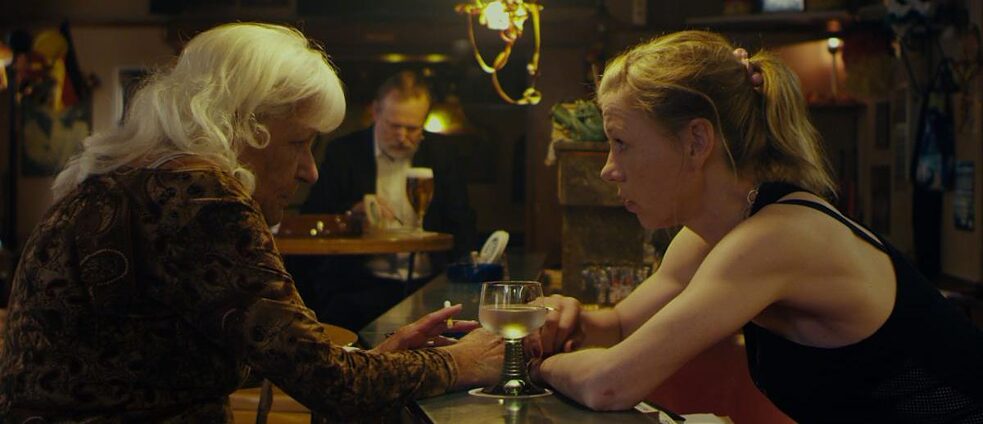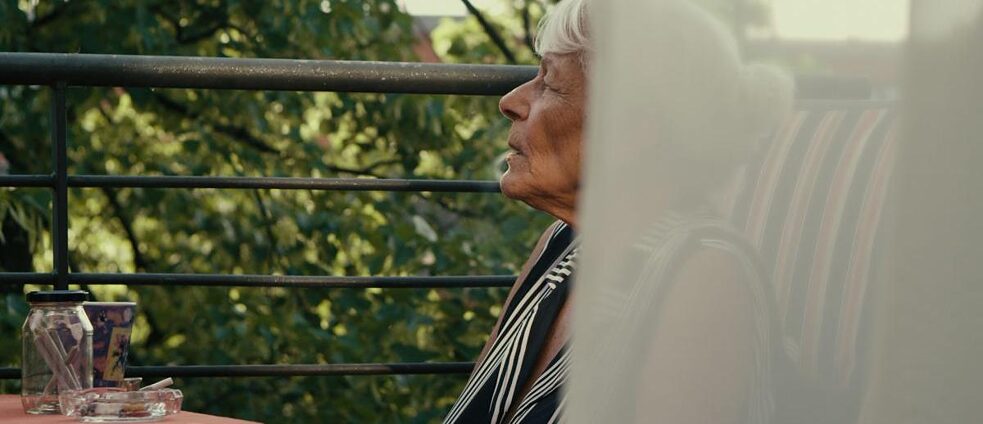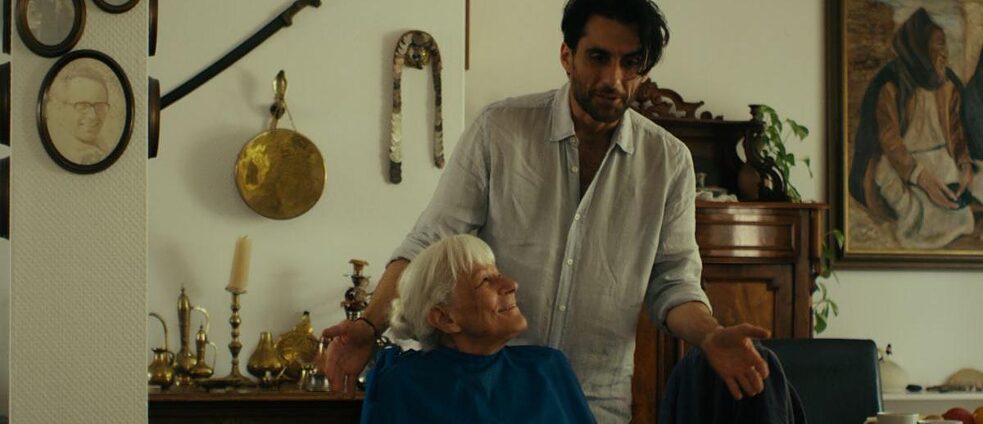Jewish International Film Festival
Ms. Stern: A small film that makes a significant impact

Shot in mere days and screening at this year’s Jewish International Film Festival, Anatol Schuster’s perceptive blend of comedy, tragedy and drama tells the tale of a nearly 90-year-old Berlin-based Holocaust survivor eager to end her life.
By Sarah Ward
In one of Ms. Stern’s earliest shots, an all-too-common image doesn’t seem to bode well. Viewers have already seen and heard the titular character (Ahuva Sommerfeld), a nearly 90-year-old Holocaust survivor, soberly state that she wants to die. And, they’ve already witnessed her chats to others about getting a gun, firmly making her suicidal feelings plain to anyone who’ll listen.
But, it’s actually something far more standard that casts a considerable shadow over the film. Visually tilting from top to bottom, writer/director Anatol Schuster (2017’s Air) establishes his movie’s Berlin location by showing Alexanderplatz’s Fernsehturm tower. It’s an eye-catching sight, both to look up at and to peer down from; however it’s also dispiritingly common in German cinema, especially when used for such a scene-setting purpose.
 "Ms. Stern" examines the issues of loneliness and suicide in old-age
| © Pluto Films
"Ms. Stern" examines the issues of loneliness and suicide in old-age
| © Pluto Films
A FASCINATING, FORMIDABLE WOMAN
Thankfully, this image - and the fact that Stern’s granddaughter Elli (Kara Schröder) and her boyfriend (Pit Bukowski) are making love outdoors with the Fernsehturm in the background - marks the film’s most routine inclusion. A wry character study that segues between black comedy, perceptive drama and tragedy, Ms. Stern is otherwise astute and heartfelt.The feature’s subject: a Jewish woman who has seen the 20th century at its worst, and Germany, too, but now feels that living is a burden. Since her time in a concentration camp, she’s also highly skeptical of and uncomfortable within her homeland. The feature’s highlight: a powerful performance by Sommerfeld, making her screen debut as an octogenarian. (Alas, it’s destined to be her only movie credit, with the actor passing away earlier this year.)
Ms. Stern, as she’s known to everyone except Elli and Elli’s similarly unnamed mother (Nirit Sommerfeld), leaves an impression from the outset. Her weathered, chain-smoking face, starkly shot in close-up from front-on in the movie’s opening frames, tells a world of stories; indeed, it’s one of the reasons why the quick switch to Fernsehturm soon after proves so disappointing. Recognising this, Schuster ensures that any detour away from her is brief. He doesn’t always task cinematographer Adrian Campean with staring into her eyes — when the feisty, fit and lively grandmother is out in the world, the film often gazes at her from a distance, or from behind as she walks and wanders — but she monopolises Ms. Stern’s imagery nonetheless. That’s how viewers come to feel the same pressure and pain that she does about continuing to breathe, living without her deceased husband and grappling with traumatic memories from the Second World War that will obviously never be shaken.
 Ahuva Sommerfeld gets ready for a haircut in the film "Ms. Stern"
| © Pluto Films
Ahuva Sommerfeld gets ready for a haircut in the film "Ms. Stern"
| © Pluto Films
SLIGHT BUT POWERFUL
Filmed over just a few days, Schuster’s is an admittedly slight story, following Stern as she talks about her death wish, endeavours to source a weapon, goes about her routine, and finds solace in partying with the twenty-something Elli and her much younger friends. Her daughter is horrified about the latter, but others, such as her marijuana-dealing hairdresser (Murat Seven), applaud the elderly woman’s verve. Stern’s other source of comfort comes from the interview-focused TV show, Glory Moment, that’s televised from outside the Brandenburg Gate and features everyday folks telling their stories. Again, given the wispiness of the narrative, there’s no need to guess where the film is headed, although surprises aren’t its main point. Here, soaking in its protagonist’s presence and perspective, and seeing the influence that modern-day Germany has upon her is far more fascinating than any twists or turns.Accordingly, Ms. Stern proves a small movie that makes a significant impact, all courtesy of a thoughtfully written character, a standout central performance and cinematography that peers exactly where it should. It’s the elder Sommerfeld’s work that’s pivotal, though, particularly in navigating the space between tiring of life, finding a way to wring some enjoyment out of her remaining days and being haunted by a past that still stubbornly lingers.
When the film is in observational, contemplative mode, spending time alone with its main figure, it conveys her aching complexity. When it brings her into contact with a motley crew of strangers, often in absurd situations, it demonstrates her fortitude as well. In both guises, Ms. Stern is weighty and insightful in its assessment of the most fundamental contrast there is - between life and death - as well as quietly moving.